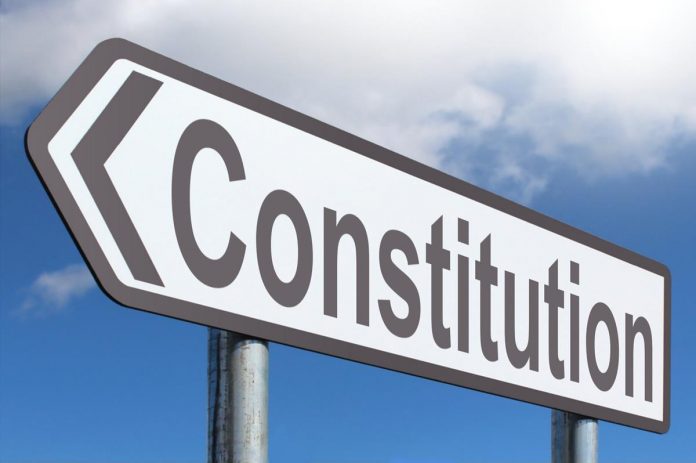This article is written by Sambit Rath, a B.A LL.B student of Dr. Ram Manohar Lohiya National Law University, Lucknow. In this article, the author analyses Article 76 of the Indian Constitution, which deals with the role, powers, and duties of the Attorney General of India.
This article has been published by Sneha Mahawar.
Table of Contents
Introduction
Have you ever wondered who represents the Union Government in the courts? The Union Government has a law officer who represents them in the courts. This law officer is known as the Attorney General of India, and he is the highest law officer in the country. He manages the legal matters of the Union Government and that of the President. His advice is sought by the President on legal issues when it is needed. Article 76 deals with the Attorney General of India. To be eligible for such a prestigious position, one needs to have the qualifications of a Judge of the Supreme Court, which include five years of experience as a Judge of a High Court or ten years as an advocate of a High Court, or in the opinion of the President, that person is a distinguished jurist. Let’s look at Article 76 of the Indian Constitution and everything else about the Attorney General of India in depth in this article.
Who is the Attorney General
According to Article 76 of the Indian Constitution, the Attorney General (AG) of India is the highest law officer in the country and a Union Executive member.
The functions he needs to perform include
- advising the government on legal matters referred to him by the president;
- appearing on behalf of the central government in the Supreme Court or any High Court;
- performing legal duties assigned to him by the President, and
- other functions conferred upon him by the Constitution.
According to the Supreme Court in P.N. Duda v. V. P. Shiv Shankar and Others 1988, the Attorney General of India is a “friend, philosopher, and guide of the court.” Currently, the person holding this position is K.K. Venugopal. He was appointed as the 15th Attorney General of India in 2017 and his term was extended by a period of one year in 2020. The first Attorney General of independent India was M.C. Setalvad.
Let’s take a look at all the Attorney Generals of India to date:
| Name of Attorney General | Tenure |
| M.C. Setalvad | 28 January 1950 – 1 March 1963 |
| C.K. Daftari | 2 March 1963 – 30 October 1968 |
| Niren de | 1 November 1968 – 31 March 1977 |
| S.V. Gupte | 1 April 1977 – 8 August 1979 |
| L.N. Sinha | 9 August 1979 – 8 August 1983 |
| K. Parasaran | 9 August 1983 – 8 December 1989 |
| Soli Sorabjee | 9 December 1989 – 2 December 1990 |
| J. Ramaswamy | 3 December 1990 – 23 November 1992 |
| Milon K. Banerji | 21 November 1992 – 8 July 1996 |
| Ashok Desai | 9 July 1996 – 6 April 1998 |
| Soli Sorabjee | 7 April 1998 – 4 June 2004 |
| Milon K. Banerjee | 5 June 2004 – 7 June 2009 |
| Goolam Essaji Vahanvati | 8 June 2009 – 11 June 2014 |
| Mukul Rohatgi | 12 June 2014 – 30 June 2017 |
| K.K. Venugopal | 30 June 2017 till date |
Appointment of Attorney General of India
The Attorney General of India is appointed by the President of the country. To be eligible, the person must be qualified for the post of a Supreme Court Judge. This is provided under Article 76 of the Indian Constitution. The qualifications required for a Supreme Court Judge are given in Article 124 of the Indian Constitution. The qualifications are as follows:
- The person must be a citizen of India.
- He has to be a High Court Judge for at least five years or of two or more such Courts in succession; or
- That person has to be an advocate of a High Court for at least 10 years or of two or more such courts in succession; or
- In the opinion of the President, that person is a distinguished jurist.
Term of office of Attorney General of India
As per Article 76, the Attorney General of India will hold office during the pleasure of the President. There is no specific term of office given in the Constitution and also nothing about removal from office, like the procedure or grounds of removal. This is the reason why the first Attorney General, M.C. Setalvad, served for 15 years. This changed when the Law Officer (Conditions of Service) Rules, 1987 came into existence. According to this legislation and the provisions provided in these rules, a law officer shall hold office for a term of three years, which can be extended for a maximum of three years. This is mentioned under Section 3 of the Rules. Recently, after completing his term of three years, K.K. Venugopal was given an extension of one year.
Remuneration provided to the Attorney General of India
The Attorney General’s remuneration is determined by the President as there is no remuneration fixed by the Constitution. This is provided in Article 76(4) of the Indian Constitution. His functions are not restricted to representing the government. He can take up private practice too. For this reason, he is not paid a salary but a retainer by the President. The retainer is said to be equivalent to the salary of a Supreme Court judge and is paid from the Consolidated Fund of India.
Removal of Attorney General of India
It can be inferred from the Article that he’s in office for as long as the President wants and he can be removed by the President. It is important to note that the President cannot take decisions on his own. This is because, according to Article 74, the President has to act on the advice of the Council of Ministers, including the Prime Minister. This means that if the President wishes to remove the Attorney General from office, then in order to take such action, he must consult with the Council of Ministers, including the Prime Minister. The President must remove the Attorney General of India if the Council advises him to. But he has the option to send this advisory back for reconsideration. After reconsidering, if the Council stays firm and stands by its earlier decision, then the President must execute it.
Another way the Attorney General can vacate the office is by resigning. This resignation has to be given to the President. His tenure also ends if the government is dissolved or replaced.
Role of Attorney General
The highest law officer in the country has certain duties to perform. The duties are stated in the Law Officers (Condition of Service) Rules 1972. These include:
- Advising the Union Government on legal matters referred to him by the President.
- Advising the President on legal matters referred to by him.
- Performing other such duties of legal nature assigned by the President.
- Appearing in the Supreme Court on behalf of the government
- Under Article 143, when the President approaches the Supreme Court for consultation, it is the duty of the Attorney General of India to represent the Government of India if any reference to it is made.
- Appearing in a High Court to represent the government of India in a case.
- Fulfil duties assigned to him by the Constitution or any other law.
- He is also the ex officio member of the Bar Council of India and is considered the leader of the Bar.
Powers and privileges of the Attorney General of India
Being the highest law officer in the country, the Attorney General of India enjoys certain powers and privileges:
- The Attorney General of India has the right to take part in proceedings of both the Houses of Parliament, their joint sitting, and any committee of the parliament in which the Attorney General of India is named a member. The Attorney General of India also has the right to speak during these proceedings. This is provided under Article 88.
- He gets to enjoy the privileges and immunities available to a Member of Parliament.
- He is not barred from private legal practice as he does not fall into the category of a government servant.
- The Solicitor General of India and the Additional Solicitor General of India help the Attorney General of India fulfil his official responsibilities.
- The Supreme Court may take action for criminal contempt on a motion made by the Attorney General of India.
Limitations of functions of Attorney General
As is the case with every position of responsibility, the Attorney General has some limitations as well:
- Even though the Attorney General of India has the power to take part in proceedings of both the houses, he doesn’t have the right to vote.
- He can not make statements that are against the Government of India.
- He can’t advise parties who are against the Government of India in litigation.
- He can not accept an appointment in a private company as a director without the Government’s permission.
- He can not defend accused persons in criminal cases without the government’s permission.
Difference between Attorney General of India and Solicitor General of India
| S.no | Basis | Attorney General of India | Solicitor General of India |
| 1 | Function | The Attorney General of India is the advisor and primary lawyer for the Union government in the Supreme Court and High Courts. | The Solicitor General of India performs similar functions but also exists to assist the Attorney General in the performance of his functions. |
| 2 | Authority | The Attorney General of India is the highest law officer in the country. | The Solicitor General of India is subordinate to the Attorney General of India. |
| 3 | Constitutionality | The Attorney General of India is a Constitutional post as per Article 76. | The post of the Solicitor General of India is statutory. |
| 4 | Appointment | The President of India appoints the Attorney General of India on the advice of the Union Cabinet. | The Appointments Committee of the Cabinet recommends the appointment of the Solicitor General of India, who is then appointed by the President. |
Important judgements
Union of India v. R.K. Jain (2017)
In this case, the Delhi High Court had to decide if the office of the Attorney General of India came within the meaning of Section 2(h) of the Right to Information Act, 2005.
Facts of the case
- The respondent had filed an application with the office of the Attorney General of India (Attorney General of India) to obtain certain information under the RTI Act, 2005.
- The office of the Attorney General of India responded by returning the respondent’s application, stating that as per the decision of the CIC, the Attorney General of India is not a “public authority” as per the meaning of Section 2(h) of the Act.
- Another application by one of the respondents was also rejected on the same grounds.
Issue
- Whether the office of the Attorney General of India is a “public authority” within the meaning of Section 2(h) of the Right to Information Act, 2005?
Judgement
- As per Article 76 of the Indian Constitution, the Attorney General of India is appointed by the President and his duties include representing the Union Government in the courts. The relationship between the Attorney General of India and the government is a fiduciary relationship as the predominant function of the Attorney General of India is to advise the government on legal matters. The Supreme Court has reiterated numerous times that the relationship between a lawyer and his client is a fiduciary relationship. Due to this, the Attorney General of India cannot put in the public domain his opinions or materials provided to him by the Government of India.
- Since the Attorney General of India is not reposed with any administrative duties that affect the rights or liabilities of persons, it cannot be called an ‘authority’. Looking at the objective of the RTI Act, it cannot be said that an office like the Attorney General of India would come under Section 2(h) of the Act.
Mr. Ajitabh Sinha v. Supreme Court of India (2012)
In this case, a Full Bench of the Central Information Commission had to decide if the office of the Attorney General of India came within the meaning of Section 2(h) of the Right to Information Act, 2005.
Facts of the case
- The complainant had filed an RTI application seeking certain information from the Attorney General. It included questions about communication between the Prime Minister and the Attorney General and he asked for a copy of the communication.
- He filed a complaint after receiving no response from the office of the Attorney General.
- Other complainants, in this case, had received a response stating that the office of the Attorney General of India is not a public authority.
Issue
- Whether the office of the Attorney General of India is a “public authority” within the meaning of Section 2(h) of the Right to Information Act, 2005?
Judgement
- The word ‘authority’ has not been defined under any law. Its meaning has to be construed as per the rulings of constitutional courts. According to the Supreme Court’s observations, the word ‘authority’ means any person or body having the power to alter his or others’ rights, liabilities, and other legal relations. Hence the office of the Attorney General of India cannot be said to be a “public authority”.
- The office of the Attorney General of India is sui generis, which means “consisting of a class alone, unique.” Therefore, even though he is appointed by the President under Article 76, he is not a public authority under Section 2(h) of the RTI Act, 2005.
Conclusion
The highest law officer of the country has been given the responsibility to represent the Union Government in the Courts and to advise the President on legal matters. To be entrusted with such duties, one has to be the best legal practitioner out there. This is why the qualifications are required to be those of a Supreme Court Judge. Over the years, there have been many great minds fulfilling their duties as the Attorney General of India. On numerous occasions, the Attorney General of India has won the case for the Union Government. Recent cases of a challenge to the repeal of Article 370 and Vombatkere vs Union of India, 2022, a case challenging Section 124A of the Indian Penal Code, are some of the examples.
Frequently Asked Questions (FAQs)
What does Article 76 of the Indian Constitution deal with?
Article 76 of the Indian Constitution deals with the power of the President to appoint a person qualified enough for the post of Attorney General of India. It also provides the Attorney General of India’s duties, rights, tenure, and remuneration.
Who decides the salary of the Attorney General of India?
The President of India has the power to decide the remuneration of the Attorney General of India as per Article 76(4).
Who is the current Attorney General of India?
K.K. Venugopal is the current Attorney General of India. He was appointed in the year 2017 as the 15th Attorney General of India. After the completion of this 3-year term in 2020, he was given an extension of one more year.
References
- https://indiankanoon.org/doc/1985537/
- https://indiankanoon.org/doc/1164880/
- https://economictimes.indiatimes.com/news/india/k-k-venugopal-reappointed-as-attorney-general-for-a-year/articleshow/83997638.cms?from=mdr
- https://indiankanoon.org/doc/453721/
- https://www.thestatesman.com/india/pleas-challenging-constitutional-validity-sedition-law-sc-hear-may-10-referred-larger-bench-1503068355.html
- https://economictimes.indiatimes.com/news/politics-and-nation/sc-commences-hearing-on-pleas-challenging-abrogation-of-article-370/articleshow/72454345.cms?from=mdr
Students of Lawsikho courses regularly produce writing assignments and work on practical exercises as a part of their coursework and develop themselves in real-life practical skills.
LawSikho has created a telegram group for exchanging legal knowledge, referrals, and various opportunities. You can click on this link and join:
Follow us on Instagram and subscribe to our YouTube channel for more amazing legal content.
 Serato DJ Crack 2025Serato DJ PRO Crack
Serato DJ Crack 2025Serato DJ PRO Crack













 Allow notifications
Allow notifications


